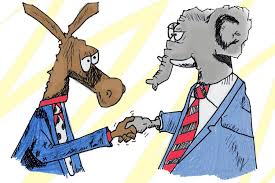Neumann, E., & Zaki, j. (2022, September 13).
https://doi.org/10.31234/osf.io/gjm8c
Abstract
Cynicism is the attitude that people are primarily motivated by self-interest. It tracks numerous negative outcomes, and yet many people are cynical. To understand this “cynicism paradox,” we review and call for more social psychological work on how cynicism spreads, with implications for how we might slow it down.
The Cynicism Paradox
Out of almost 8,000 respondents from 41 countries, many agree that “powerful people tend to exploit others” or that “kind-hearted people usually suffer losses”. This indicates widespread cynicism, the attitude that people are primarily motivated by self-interest, often accompanied by emotions such as contempt, anger, and distress, and antagonistic interactions with others. What explains such cynicism? Perhaps it reflects a realistic perception of the suffering caused by human self-interest. But workin social psychology regularly demonstrates that attitudes are not always perfect mirrors of reality. We will argue that people often overestimate self-interest, create it through their expectations, or overstate their own to not appear naïve. Cynicism rises when people witness self-interest, but social psychology –so far relatively quiet on the topic –can explain why they get trapped in this worldview even when it stops tracking reality.
Cynicism is related, but not reducible to, a lack of trust. Trust is often defined as accepting vulnerability based on positive expectations of others. Generalized trust implies a general tendency to have positive expectations of others, and shares with cynicism the tendency to judge the character of a whole group of people. But cynicism is more than reduced positive expectations.It entails a strongly negative view of human nature. The intensity of cynicism’s hostility further differentiates it from mere generalized distrust. Finally, while people can trust and distrust others’ competence, integrity, and predictability, cynicism usually focuses on judgments of moral character. This differentiates cynicism from mere pessimism, which encompasses any negative beliefs about the future, moral or non-moral alike.
Direct applications to psychotherapy.


